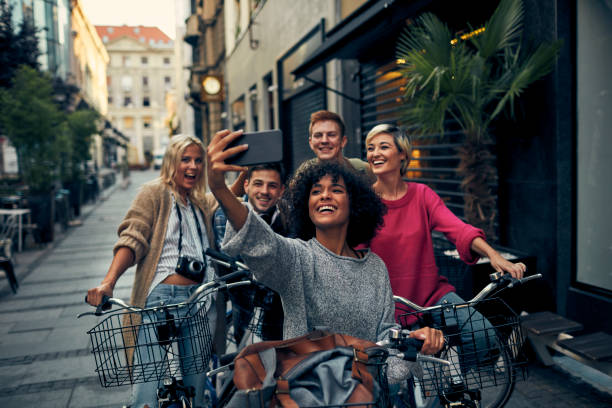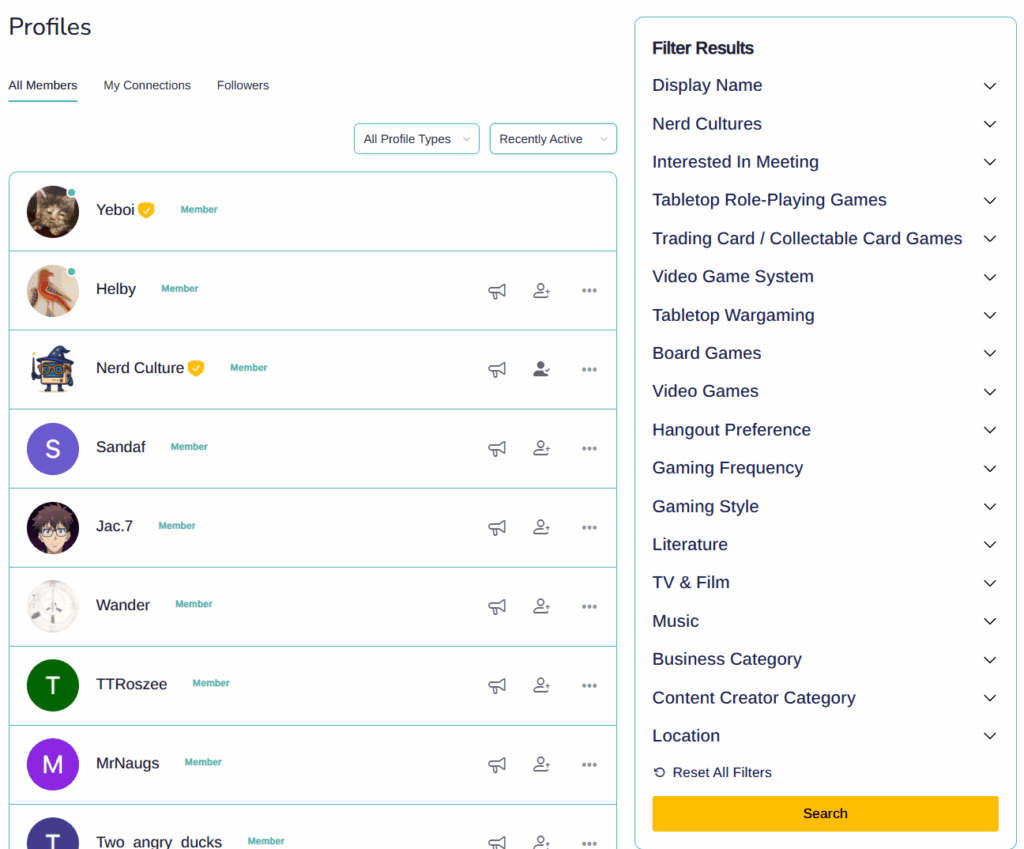
Top Hobbies for Adults in 2025
Explore creative, active & social hobbies for adults, plus expert tips to start and stick with it.

Do you dread people asking, “So, what do you do for fun?” If so, you might be an adult. Lots of adults don’t have any hobbies and aren’t sure how to find hobbies. We had no shortage as kids but we outgrew many of them. And work, family, and… Amazon Prime has a knack for keeping adult hobbies to the side. But, hobbies for adults are important. And there’s a strong need for adult hobbies right now. Not only are they fun, but they also help alleviate loneliness, mental health issues, and feelings of purposelessness in life. All of these are big problems in the world today.
A fun hobby can enrich your life in many ways and help you on your way to finding your passion in life! Hence why we wrote this post to help you find new hobby ideas for adults. But first…
What is a hobby?
The Cambridge Dictionary defines a hobby as “an activity that someone does for pleasure when they are not working.” So, an adult hobby can be anything. And you can absolutely have more than one.
There are many different hobbies for adults to try
Some hobbies are group-based; others are solo. Some fire up your adrenaline; others make you feel serene. Some people love social hobbies for adults as they spend lots of time working alone. On the other hand, some love creative hobbies for adults as they give them some alone time to enjoy.
Hobbies come in many different forms:
- Physical hobbies: Team sports and group exercise classes are some of the most popular hobbies for adults. They’re fun, improve physical fitness, build mental toughness, and are a good stress reliever.
- Social hobbies: Our hyper-tech-focused world has led to a drop in social interactions. Gen Z has reached record-high levels of loneliness. So, social hobbies for adults are popular. There are many groups that keep it simple and organize pleasant activities such as walking and coffee meetups. You don’t have to do anything strenuous.
- Creative hobbies: Many seek hobbies to connect with others. However, creative hobbies help you connect with yourself. Creativity invites “flow states” – a pleasurable state of mind coined by psychologist Mihaly Csikszentmihalyi. He described them as “a mental state where a person is completely immersed and focused on an engaging activity, experiencing a sense of energized focus, full involvement, and enjoyment.”
- Intellectual hobbies: Setting time aside for a hobby each week can gradually become a life-changing skill. Intellectual hobbies can help you connect with others, better understand yourself and the world, or give you a valuable skill that could open doors.
- Collecting hobbies: The internet breathed new life into collectable hobbies as it’s easier to discover new items and to connect with others who share your passions.
- And more!
So whatever you’re into, there are hobbies out there for you to enjoy. And enjoyment is just one of the many benefits you can look forward to.
Your Hub for Finding Friends Who Share Your Adult Hobbies
Hobbies for adults come with many physical and mental benefits
It’s common for work, family, and finances to make it challenging to maintain adult hobbies. While it can be hard (stick around for tips to tackle this), it’s worth the effort to make hobbies a part of your life. They are beneficial for many reasons:
- Increased happiness: Simply put, doing something you enjoy regularly tends to make you happier. Simple, right? This holds true at all ages. A 2023 study involving 93,000 people, aged 65 or older, across 16 countries found that those with hobbies reported better happiness, health, and well-being.
- Better mental health: Social connection, being active, feeling part of a community, and learning are all great for your mental health. It’s lovely to know that whatever mood you’re in, you have something in the diary to look forward to every single week.
- Making friends: Whether intentional or not, making friends just seems to happen automatically when you have a social hobby. Bonding over a shared passion is the perfect environment for it.
- Increased confidence: “The way you do anything is the way you do everything.” Getting good at something builds confidence, even if it’s an unusual skill that doesn’t seem important. You start to notice how far you’ve come since you started. Then you can’t help but think, “What other areas of my life could I apply this to?” It positively reinforces that with time, effort, and commitment, you can get better at whatever you set your mind to.
- Better fitness: Some hobbies have a side effect of making you fitter. You might hike for the views but you notice that you’re walking over 50,000 steps a week. You might play dodgeball as it’s fun but you notice that your fitness level has shot up since your first day.
- Enhanced brain function: “Mental hobbies“ can improve cognitive skills. Research suggests that activities such as reading and learning an instrument can be part of a proactive strategy to reduce cognitive decline.
- Networking opportunities: “Every person is a new door to a different world.” You never know who you could meet when you start a new hobby. Meeting new people can lead to new opportunities and experiences that you might have never found elsewhere. And the best part? You’re not even looking for them. They just happen occasionally when you meet new people.
So whether you’re bored, feeling stressed, or just want to try something new, there’s no shortage of adult hobbies to pick up.
Popular hobby ideas for adults
Competitive hobbies for adults
- 5-a-side soccer
- Tennis
- Rugby
- Basketball
- Badminton
- Racketball
- Volleyball
- Dodgeball
- Pickleball
- Paddle boarding
- Martial arts
- Golf
- Table tennis
- Fencing
- Archery
- Rowing.
While these are all competitive sports, you don’t need to compete if you don’t want to. You can attend the training and enjoy getting better without committing to competitions.
Active hobbies for adults
Want to get out of the house and move? Active hobbies for adults keep you fit while having fun.
- Running
- Roller skating
- Weightlifting
- Sailing
- Swimming
- Boxercise
- Surfing
- Horse riding
- Cycling
- Rockclimbing
- Bouldering
- Running
- CrossFit
- High-Intensity Interval Training (HIIT)
- Calisthenics (bodyweight training)
- Hydrox
- Zumba
- Acro yoga
- Triathlon training
- Obstacle courses (Tough Mudder, Spartan Race, etc.)
Adventures & exploration hobbies for adults
These are great hobbies for those who seek out new experiences that you don’t find in day-to-day life.
- Backpacking
- Hiking
- Paddle boarding
- Camping
- Fishing
- Sailing
- Scuba diving
- Canoeing
- Paragliding
- Road tripping
Creative hobbies for adults
Creative hobbies and crafts for adults are probably the easiest adult hobbies to start. Most can be done at home, so they’re easier to fit into your schedule. Creative hobbies tend to be good hobbies for ADHD adults, giving them an area to focus on in an environment that works for them.
- Dancing
- Podcasting
- Writing
- Photography
- Crocheting
- Learning an instrument
- Painting
- Blogging
- Computer programming
- Poetry
- Music production
- Filmmaking
- Home improvement projects
- Woodworking
- Origami
- Model building
- Drawing
- Candle making
- Acting
- Singing
- Stand-up comedy
Intellectual & mindful hobbies for adults
There’s a near-endless list of mindful hobbies to give your mind different things to focus on.
- Chess
- Board games
- History studies
- Meditation
- Card games
- Cooking
- Birdwatching
- Public speaking
Social and community hobbies for adults
Slower-paced social hobbies for adults are a great way to relax and enjoy meeting new people in a calmer setting.
- Gardening
- Photography
- Pottery
- Journaling
- Knitting/crocheting
- Gaming
Collecting hobbies
Hobbies to do at home for adults are popular. They are much easier to fit into your schedule and some people want more alone time.
- Stamps
- Sports memorabilia
- Band t-shirts
- Action figures
- Vintage clothing
- Plants
- Teacups
- Coins
Hobbies that could earn you some extra income
Learning a new skill is fun, plus it could turn into a valuable skill where people will be willing to pay for your expertise.
- Blogging
- Computer programming
- Graphic design
- Thrifting
- Gardening
- Teaching
Tips to start a social adult hobby if you struggle in social settings
Meeting new people makes some people anxious, so much so that it puts them off trying new adult hobbies. Many introverted, shy, gender diverse, neurodiverse, and LGBTQI+ individuals want to start new hobbies but struggle with how to make friends as an introvert, particularly when group activities are involved.
A good starting point is to think about where you feel most comfortable building friendships. There’s a well-known concept in sociology and psychology known as “shoulder-to-shoulder” versus “face-to-face”:
- Shoulder-to-shoulder: People who typically build friendships around shared activities and tasks. Examples include playing sports, exercise classes, gaming, etc. Men, on average, tend to prefer building friendships this way.
- Face-to-face: People who typically build friendships around communication, emotional sharing, and mutual support. Examples: Book clubs, arts and craft classes, group lunches, etc. And women tend to prefer building relationships this manner.
Of course, this isn’t the case for all men and women. Some people have no preference at all. But if one sounds more appealing to you, it could help you pick and settle into a new hobby.
Connect with other Adults with Similar Hobbies
Meet new friends who share your hobbies near you or online with Nerd Culture. Set your preferences to quickly find the right people.

Calm group hobby ideas for adults who feel anxious in group settings
- Gender-specific, LGBTQI+ and neurodiverse groups: There are more groups popping up on websites such as Nerd Culture for those who feel more comfortable being around like-minded people.
- Volunteering: Focusing on a cause is a great way to ease anxiety. Doing something physical alongside others leaves little room for introspection.
- Book clubs: Many people feel more at ease meeting people in a quieter environment, which makes book clubs popular for all age groups.
- Board games: Today’s hyper-digitalized world has led to a resurgence of board games. Focusing on playing the game makes it a fun and comfortable experience to meet new people.
- Nerd Culture: If you feel like nobody shares your hobbies, you might be wrong! What is Nerd Culture? The platform brings thousands of people together from all over the world to play everything from RPGs, card games, cosplay, to outdoor adventures such as hiking and biking.
Hobby ideas for adults who seek competition in a safer environment
People often stop playing the sports they love because they’re too dangerous. Also, some people enjoy playing sports, but they don’t like it when they get overly competitive and aggressive. Thankfully, there are lots of ways to enjoy sports that are typically hard on the body.
- Flag football: Players wear belts with flags that must be pulled off to tackle a player. Perfect for American football fans who want to enjoy the game without the eye-wincing collisions.
- Tag/touch rugby: Rugby is another popular sport but like American football, it’s brutal. Tag/touch rugby is minimal-contact rugby – so no scrums, rucks, or tackles. It’s often played in mixed genders, where women get 2 points for a try and men get 1 point per try. This encourages inclusivity, making it a popular game for all genders. Also, rugby is known for building deep connections and camaraderie that’s hard to find elsewhere.
- Walking soccer: Soccer is the world’s most popular sport but it’s a fast-paced contact sport. Injuries are common. Walking soccer is pretty much the same but you must walk at all times and there’s no contact. It’s a popular choice for senior citizens and people with limited mobility. A slower pace puts more emphasis on tactics and vision – making one of the most popular hobbies for older adults.
- Private martial arts classes: There’s a long list of martial arts to try. They offer an explosive workout and are known to build confidence. The dealbreaker for many is that they don’t want to get hurt sparring, which is common in group classes. Private classes offer a controlled environment with your instructor. You can spar lightly with a well-trained professional or forget sparring altogether and focus on learning the techniques.
Cheap hobbies for adults
Some adult hobbies are more expensive than others, but fear not. Many are free or affordable on the leanest of budgets.
Free/afforable hobbies:
- Running
- Podcasting
- Drawing
- Swimming
- Walking and hiking
- Creative writing
- Blogging
- Volenteering
- Reading
- Writing or journaling
- Bodyweight exercises & yoga
- Learning a language
- Beachcombing
- Meditation
- Birdwatching
- Yoga
Top tips for making new hobbies more affordable
Hobbies for young adults can often be hard to start as they’re expensive. While this could be a barrier, there are things you can try to make them accessible. Or at least, do the next best thing until you have the resources.
- See if there’s a free/cheaper option: Let’s say joining a trendy CrossFit gym might be too expensive for you at this time, there could be some free/cheaper fitness options around you instead. It might not be what you wanted but it’s the next best thing until you can afford it.
- Take a DIY approach: A guitar teacher might be too expensive right now but you can get started for free by learning on YouTube or buying an instructional book online.
- Explore second-hand options: Choosing a second-hand option could save you hundreds of dollars. Bookmark marketplace websites and check them regularly so you don’t miss out when the items you need are available at a good price.
- Rent equipment: Some hobbies, such as photography, use a large array of equipment. It’s not always a good use of money to spend big on something you only need occasionally. So, renting equipment can be a wise investment.
- Reach out: Exploring new adult hobbies comes with lots of unknowns, which is part of the fun. It’s worth reaching out to people who participate in the hobbies that excite you. Maybe they’ll ignore your message or they could give you valuable tips. Who knows, they might even give you some old equipment they no longer need. They’re passionate about the hobby too, so they might be willing to help out.
Top tips for trying new adult hobbies
Whether you have many hobbies you’re keen to try or none, here are some pointers to help you pick one one that suits you.
1. Decide what you want from your new hobby
There are thousands of different adult hobbies to try. Some will give you a burst of adrenaline while others will make you feel sleepy. There’s an abundance of choice. So, to narrow it down and think about what you want from your hobby:
- Make friends?
- Save money?
- Push yourself in a competitive sport?
- Add more joy to your life?
- Learn more about the world?
- Spend more time in nature?
- Learn a valuable skill that could earn you some additional income?
- Improve your mental health?
- Improve your physical health?
- Learn a life-changing skill?
- Help make the world a better place?
- Create something tangible that you can admire?
- Reduce your screen time?
Write down the ones that you connect with the most, make a list of some hobbies that could satisfy them, then, pick the hobby that excites you the most.
2. Don’t wait for “free time” to show up in your calendar, create it
You may have a lack of hobbies simply because you don’t have enough free time. While learning how to make time for hobbies can be hard, it can be helpful to think about making time, not waiting for free time to appear in your schedule. Plan your week on Sundays and put everything in the diary. A bit of organization and mixing up your schedule could unlock time for new adult hobbies that you love. It might sound weird but putting more things in your schedule can help you free up more time! It’s called Parkinson’s Law, “work expands so as to fill the time available for its completion”.
For example, waking up knowing that you have a boxercise class at 6 PM will make you more driven to complete your to-do list, so you can get to boxercise on time without work hanging over you. You become more aware of your time and how to structure it.
Join Adult Hobby Groups that Fit Your Schedule
Find hobby groups near you or online from table-top RPG games to book clubs with Nerd Culture. Find groups that match your schedule and keep you accountable.

3. Test the water before going all in
The drive to start a new hobby can make people jump in the deep end. And that could be a great thing or a bad thing. Imagine two friends walk past a hot yoga studio and they love what they see. So, they sign up for a 6-month membership and buy new yoga attire.
One of the friends loves it. But the other finds it mind-numbingly dull. She wants to do something more energetic, but she can’t afford it for a few months now, as she’s hundreds of dollars down and locked into a contract. To avoid this when looking for hobbies to try as an adult, ease yourself into it if you’re not 100% sure. Make sure you enjoy it before committing.
4. Give it time
You might walk away from the first day of your new hobby feeling incredible, eager to go again ASAP. It’s also possible that you might not enjoy it that much. So if you don’t have the best time, it’s worth giving it another try to be sure before giving up. It’s normal to feel awkward when learning something new around a group of people. Lots of people don’t like being the rookie when they start a new sport or creative art.
But it’s unhelpful getting down about it as you don’t know how many hours they’ve put in. Instead, relish being a rookie and just enjoy it. You will improve. If you need more motivation to stick, remember that Michael Jordan was cut from his varsity team in high school! He wasn’t the best from day one. There will always be people ahead and behind our skill level, so it’s not worth focusing on. There’s so much more to hobbies than just “winning” or “being the best”. You may find that you enjoy your hobbies more as the weeks pass.
6. Invite a friend to start a new hobby with you
Bringing a friend can help you settle into a hobby faster and have more fun. Plus, on the rainy days when one of you isn’t feeling it, you can give each other a nudge to go.
7. If you’re not having fun, try something else
Picking a hobby isn’t a big deal. If it feels more like a chore than something that brings you joy, you can drop it and try another one. People discover their passions at all ages. You can mix it up and keep trying different things for years. Trying new things and meeting new people along the way is an experience in itself.
Tips for sticking to your hobby year-round
It’s common for hobbies to get dropped, even when we love them. Whether it’s work exhausting us, bad weather, or just a period of low motivation – all can stop us from doing the things that we enjoy. It’s the down days that test the strength of your habits.
Good habits help keep you consistent with your adult hobbies. So if you struggle to maintain helpful habits, we recommend James Clear’s highly rated book, Atomic Habits. It popularized simple techniques to help people build good habits and break bad ones.
Remarkably simple adjustments to your approach could make the difference between maintaining a hobby year-round or dropping it after a few weeks.
Imagine that you got tired of having no adult hobbies. So, you sign up for several early morning running clubs to attend before work. You love them once you’re out of your house – but that’s the part you struggle with. The snooze button is more appealing than running at 7 AM – especially when it’s raining. So, here’s how you could apply the strategies from Atomic Habits to help you attend the running clubs:
- Make it (the habit) obvious: Prepare everything you need before you go to bed. Leave your running clothes next to your bed and check that you have breakfast to enjoy in the morning. Now, your mind is prepped to get up and run in the morning. The obstacles have been removed.
- Make it attractive: Do everything you can to make the thought of going for a run tomorrow as attractive as possible. Throw away your old clothes that you don’t feel comfortable in and buy some new ones. Invite a friend to join you. Download a podcast that you can listen to when you return home. Give yourself more reasons to wake up excited and go for a run.
- Make it easy: When the alarm rings and you wake up all cosy, the thought of going for a run feels exhausting. The snooze button looks very tempting though. So, make it easier. Say to yourself that all you need to do is put on the clothes and running shoes next to your bed, then drink a glass of water. Focus on doing those only. And once you’ve done them – the hardest part is over. You’re up and dressed, ready to run.
- Make it satisfying: Even though the hobby in itself is satisfying, make the habit of going even more satisfying by treating yourself. This could be enjoying a coffee on the way home – whatever you find rewarding.

